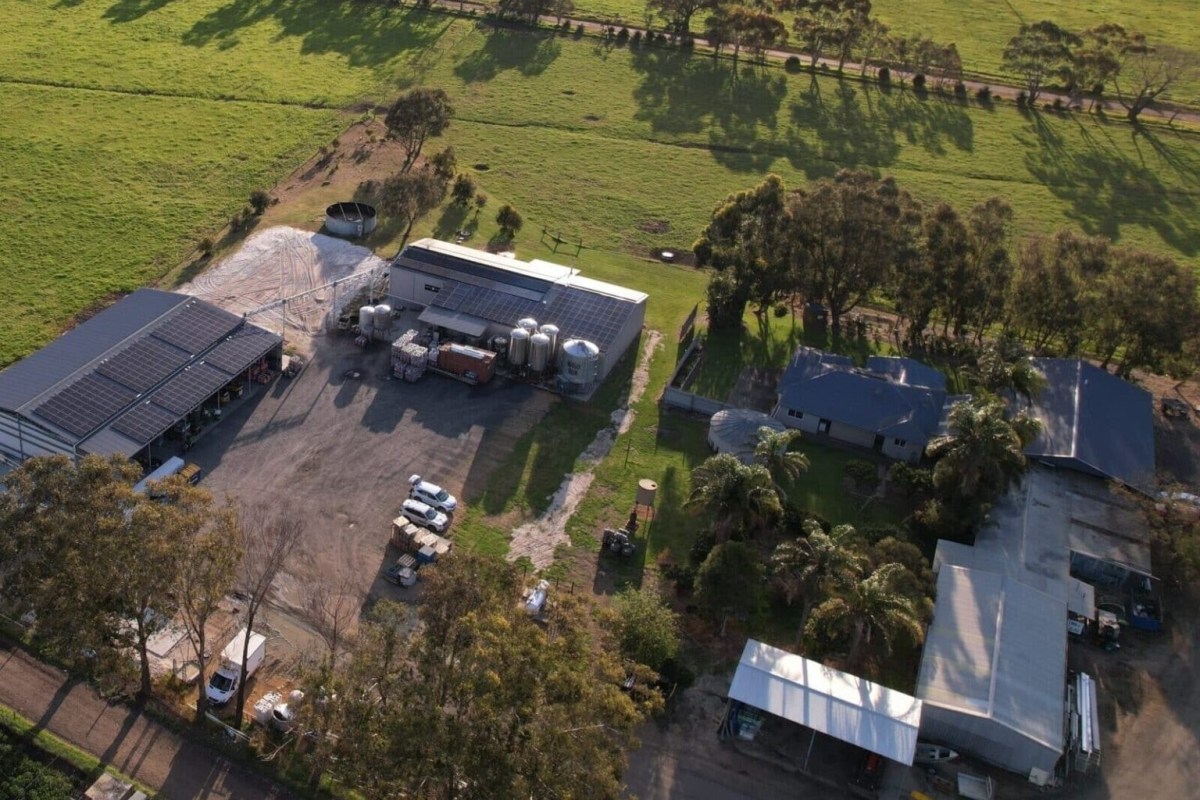Independent Australian brewery Rocky Ridge Brewing Co is one of nine small businesses to receive financial support from the Coles Nurture Fund in its 12th round of grants, supporting its mission to become Australia’s first Net Zero Certified Sustainable brewery.
Already the first Australian brewery to achieve both Certified Sustainable accreditation and be 100 per cent Carbon Neutral, Rocky Ridge has its sights firmly set on Net Zero status, and the project has now been accelerated with funding of $400,000.
Looking back on the brewery’s journey to carbon neutral, and now to net zero, Rocky Ridge Co-Founder Hamish Coates told Beer & Brewer about the drive behind the mission.
“I’m a fifth-generation farmer down in the southwest of Western Australia near Margaret River, and what has been particularly evident to me over the last 15 years is the drying climate.
“We’re seeing the impacts of that across the board, and I believe it’s our responsibility, and every business and person’s responsibility, to take the actions we can to make a difference.”
For Coates, sustainability is about more than reducing CO2 emissions. He says: “For us, sustainability is an all-encompassing view to doing the right thing environmentally, socially and responsibility.
“It’s about how we impact our entire supply chain to ensure that we’re reducing emissions with every step, reducing plastic waste at every step, ensuring the lowest food miles possible, working with farmers to make sure we have the best quality products coming on-site that are grown in the best way possible.”
Thanks to the Coles Nurture Fund, $400,00 will go a long way in supporting the Busselton brewery’s Net Zero project.
There are two key components to the mission, and the first is enhancing battery storage. Currently, the brewery runs on a solar and battery system capable of powering 120 houses, and by doubling its battery capacity, will be fully off grid for all of its electrical consumption.
“What we’re offsetting now is our backup generator, and so the extra battery capacity and inverter capacity that we put in will negate the need for that generator. Up to this point, what we’ve done is remove the vast majority, and this grant will get us over that tipping point,” said Coates.
The second use for the grant is to invest in wastewater recycling, with the installation of a wastewater reuse system set to reduce water consumption by 28 per cent.
“We currently sit between three and 3.5 litres [of wastewater] per litre of beer produced, which is about a third of the industry average already. However, with this waste recycling, we’ll be able to get that down as low as we can feasibly get,” added Coates.
Net Zero status would be a significant achievement for the brewery, but for Coates, it also demonstrates an industry-wide ability to make change.
“It’s huge for us. It’s been a drive for us over the last seven years to get our emissions the lowest they can possibly be, but to get to that net zero point would ultimately show that you can make lots of small changes to get your emissions lower, but it will also help us show the rest of the industry that you can make these changes and they’re not too complex in and of themselves.
“There is a lot that’s gone into it, don’t get me wrong, but it would provide us a platform to demonstrate to the rest of the industry that you can make changes that will reduce your impact in a meaningful way,” he said.
Not only will this have a positive influence on other breweries, but Coates also highlights the opportunity to change negative connotations associated with production and waste in the brewing industry.
“When it comes to being net zero emitters, and showing that beer can be brewed in ways which have low environmental impact and make it a sustainable long-term industry and product, it will help the entire industry to show that we’re not a wasteful, polluting industry.
“We’re very thankful to Coles for providing us with this platform, but also for showing the support of what we’re doing in this space. It’s a nice way of bringing this to the forefront of our industry, but also to a wider population.
“I think it’s really important, particularly now as we’re seeing the impacts of a changing climate, reducing rainfall and a lesser tolerance for wasteful practices. It’s nice to see that there are people out there who care, and are listening to that,” Coates stated.

